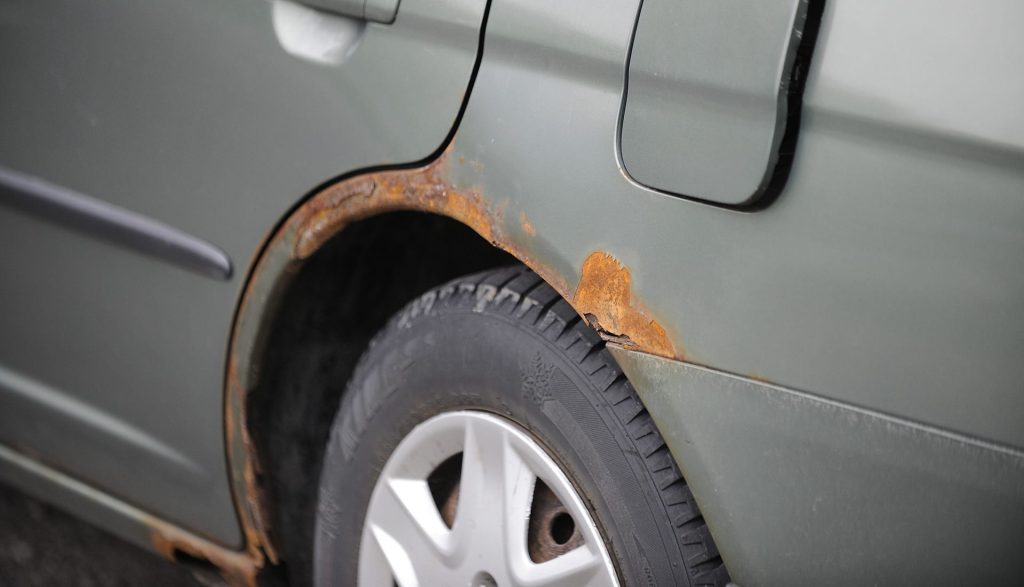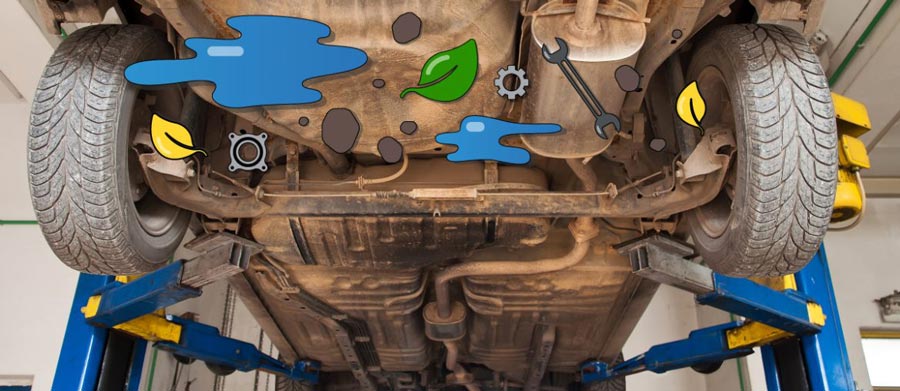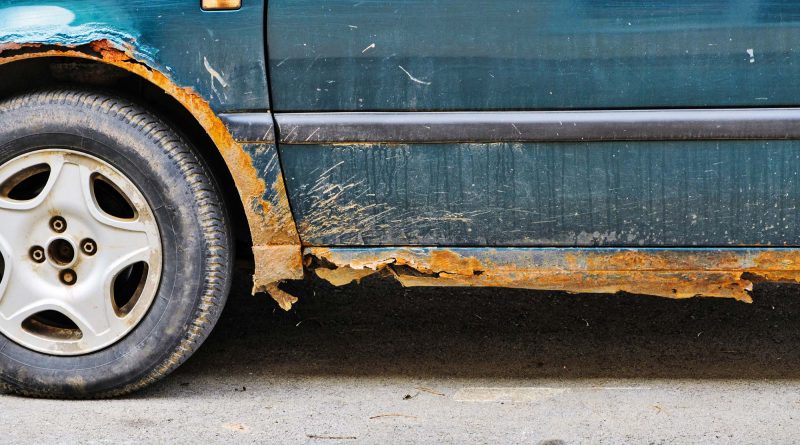Don’t Let Rust Take Over: Tips for Stopping Car Rust in Its Early Stages
Preventing car rust is essential for maintaining the longevity and appearance of your vehicle. Rust is not only unsightly, but it can also compromise the structural integrity of your car, leading to costly repairs or even safety hazards. By understanding the causes of car rust and taking proactive measures to prevent it, you can ensure that your vehicle stays in top condition for years to come.
Understanding the Causes of Car Rust
Rust forms on cars when iron or steel components are exposed to moisture and oxygen over time. This exposure causes a chemical reaction known as oxidation, which results in the formation of rust. While modern cars are built with protective coatings and treatments to prevent rust, these coatings can wear off over time, leaving vulnerable areas exposed.
Several factors contribute to rust formation on cars. One of the main culprits is road salt, which is commonly used to melt ice and snow during winter months. Salt can accelerate the corrosion process by increasing the conductivity of water, making it easier for rust to form. Other factors include exposure to rain, humidity, and environmental pollutants such as acid rain or industrial emissions.
Identifying Early Signs of Rust
Spotting rust on your car early on is crucial for preventing further damage. Some common signs of rust include discoloration or bubbling on the surface of the paint, especially around seams or edges. You may also notice flaking or chipping paint, as well as a rough texture on certain areas of your car.
It’s important to note that there are different types of rust that can affect your car. Surface rust is the most common type and typically appears as small spots or patches on the surface of the metal. If left untreated, surface rust can progress into more severe forms such as scale rust or penetrating rust, which can cause significant damage to your car’s body.
Regular Cleaning and Maintenance to Prevent Rust

Keeping your car clean is one of the most effective ways to prevent rust formation. Regular washing removes dirt, salt, and other contaminants that can contribute to rust. It’s especially important to clean your car after driving on salted roads or during the winter months when road salt is commonly used.
When washing your car, pay special attention to the undercarriage and wheel wells, as these areas are more prone to rust due to their proximity to the road. Use a high-pressure hose or pressure washer to remove any debris or salt buildup. Additionally, consider using a car wash soap that is specifically formulated to remove contaminants without stripping away protective coatings.
Choosing the Right Cleaning Products for Your Car
Choosing the right cleaning products for your car can make a significant difference in preventing rust. There are various types of cleaning products available, including soaps, degreasers, and rust inhibitors. It’s important to choose products that are specifically designed for automotive use and are safe for your car’s paint and finishes.
When selecting a car wash soap, opt for a pH-neutral formula that is gentle on your car’s paint while still effectively removing dirt and grime. Avoid using household cleaners or abrasive products, as these can strip away protective coatings and damage your car’s finish. Additionally, consider using a rust inhibitor or sealant after washing your car to provide an extra layer of protection against rust.
Applying Protective Coatings to Prevent Rust
Applying protective coatings to your car can help prevent rust by creating a barrier between the metal surface and moisture or oxygen. There are several types of protective coatings available, including waxes, sealants, and ceramic coatings.
Waxes are a popular choice for protecting your car’s paint and preventing rust. They provide a temporary barrier against moisture and contaminants and can be easily applied by hand or with a machine polisher. Sealants, on the other hand, offer longer-lasting protection and are typically applied with a foam applicator or microfiber cloth.
Ceramic coatings are the most durable and long-lasting option for protecting your car against rust. These coatings create a semi-permanent bond with the paint surface, providing exceptional resistance to UV rays, chemicals, and environmental contaminants. However, ceramic coatings require proper preparation and application, so it’s recommended to seek professional help or do thorough research before attempting to apply them yourself.
How to Repair Minor Rust Spots on Your Car
If you notice minor rust spots on your car, it’s important to address them as soon as possible to prevent further damage. There are several methods for repairing minor rust, depending on the severity of the rust and the affected area.
One common method is sanding and repainting the affected area. Start by sanding away the rust using fine-grit sandpaper or a sanding block. Once the rust is removed, apply a primer to the bare metal and then paint over it with matching automotive paint. This method is best suited for small rust spots or surface rust.
Another method is using a rust converter or rust remover. These products chemically convert rust into a stable compound that can be painted over. They are typically applied directly to the rusted area and left to dry before applying primer and paint.
For more severe rust or areas that cannot be easily repaired, it may be necessary to replace the affected parts or seek professional help from a body shop.
The Importance of Keeping Your Car Dry to Prevent Rust
Moisture is one of the main contributors to rust formation on cars. When water comes into contact with metal surfaces, it can cause oxidation and accelerate the corrosion process. Therefore, keeping your car dry is crucial for preventing rust.
One way to keep your car dry is by parking it in a covered or enclosed space such as a garage or carport. This provides protection against rain, snow, and other environmental factors that can contribute to rust. If you don’t have access to a covered parking space, consider using a car cover to protect your vehicle from the elements.
Additionally, make sure to dry your car thoroughly after washing or driving in wet conditions. Use a microfiber towel or chamois to remove any excess water from the surface of your car, paying special attention to seams, crevices, and other areas where water can accumulate.
Avoiding Excessive Exposure to Moisture and Salt
In addition to keeping your car dry, it’s important to avoid excessive exposure to moisture and salt, as these can significantly accelerate the rusting process. If you live in an area with high humidity or frequent rainfall, consider using a dehumidifier in your garage or parking space to reduce moisture levels.
During winter months when road salt is commonly used, take extra precautions to protect your car from salt damage. Avoid driving through puddles or slushy areas where salt can accumulate on your car’s undercarriage. If you do drive on salted roads, make sure to wash your car as soon as possible to remove any salt residue.
How to Store Your Car to Prevent Rust

If you need to store your car for an extended period, it’s important to take proper precautions to prevent rust formation. Before storing your car, thoroughly clean and dry it to remove any dirt or contaminants that can contribute to rust. Consider applying a protective coating or wax to provide an extra layer of protection.
When choosing a storage option, opt for a dry and well-ventilated space that is free from moisture and humidity. If possible, store your car indoors in a garage or storage facility. If outdoor storage is the only option, use a breathable car cover that allows air circulation while still providing protection against the elements.
Seeking Professional Help for Severe Rust Issues
While regular cleaning and maintenance can help prevent rust on your car, there may be instances where professional help is needed to address severe rust issues. If you notice extensive rust damage or areas that cannot be easily repaired, it’s best to consult a professional body shop or rust repair specialist.
Professional services for rust repair can include sandblasting, welding, and panel replacement, depending on the severity of the rust and the affected areas. These services require specialized equipment and expertise to ensure proper repair and restoration of your car.
Conclusion
Preventing car rust is essential for maintaining the appearance and value of your vehicle. By understanding the causes of rust, identifying early signs, and taking proactive measures such as regular cleaning, applying protective coatings, and keeping your car dry, you can significantly reduce the risk of rust formation. Additionally, knowing when to seek professional help for severe rust issues can help prevent further damage and costly repairs. By following these tips and incorporating them into your car maintenance routine, you can ensure that your car stays rust-free for years to come.
